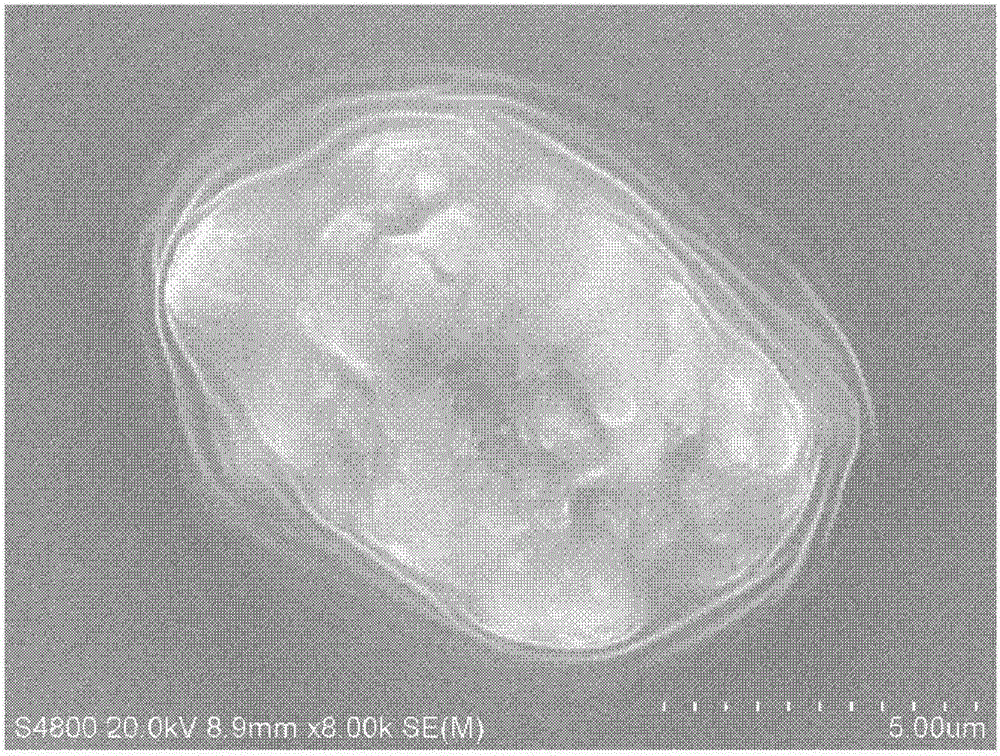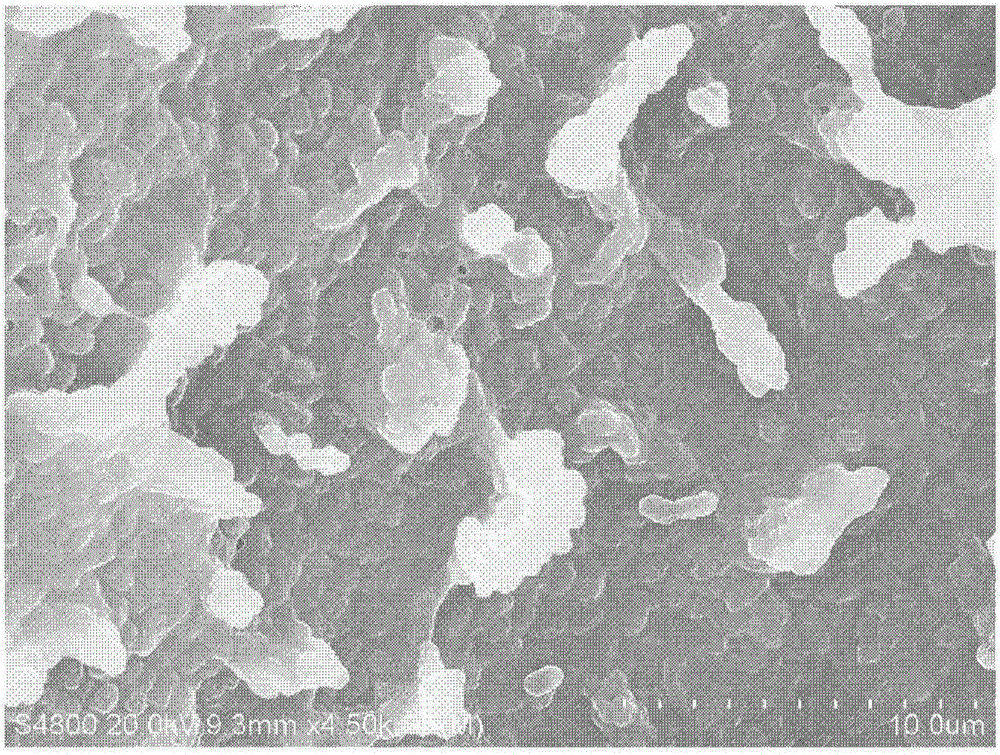Application of garbage enzyme in aspect of controlling lake algal bloom hazard
An environmentally friendly enzyme and algae technology, applied in chemical instruments and methods, biological water/sewage treatment, water/sludge/sewage treatment, etc., to inhibit the growth of algae, avoid secondary pollution, and improve water quality.
- Summary
- Abstract
- Description
- Claims
- Application Information
AI Technical Summary
Problems solved by technology
Method used
Image
Examples
preparation example Construction
[0046] The invention also discloses a preparation method of an environment-friendly enzyme, comprising the following steps:
[0047] Fruits and / or vegetables, as well as water and sugars are put into airtight containers in proportion to ferment for 3-6 months, and the filtered clear liquid is filtered to obtain the environment-friendly enzyme.
[0048] Wherein, the fermented raw materials may only contain fruits, not vegetables; for example, preferably 1 / 3 apple peel, 1 / 3 banana peel and 1 / 3 orange peel. The fermented raw materials can also only contain vegetables without fruits; for example, 1 / 3 of lettuce, 1 / 3 of cabbage and 1 / 3 of spinach are preferred.
[0049] Wherein, the environment-friendly enzyme is mixed and fermented according to the volume ratio of fruits and / or vegetables: water: sugar = 1: 2-4: 8-12.
[0050] The invention also discloses a preparation method of an algal bloom inhibitor, comprising the following steps:
[0051] The algal bloom inhibitor is obtai...
Embodiment 1
[0061] Embodiment 1 environmental protection enzyme is to the inhibition of Microcystis aeruginosa
[0062] (1) Experimental supplies
[0063] Microcystis aeruginosa, enzymes;
[0064] Medium: sodium nitrate, dipotassium hydrogen phosphate, magnesium sulfate, calcium chloride, sodium carbonate, ferric citrate, Na 2 EDTA;
[0065] No ammonia: concentrated sulfuric acid;
[0066] Total nitrogen: potassium nitrate, sodium hydroxide, potassium persulfate, concentrated hydrochloric acid;
[0067] Total phosphorus: ascorbic acid, ammonium molybdate, potassium antimony tartrate, potassium dihydrogen phosphate;
[0068] Ammonia nitrogen: ammonium chloride, potassium sodium tartrate, potassium iodide, mercury dichloride, potassium hydroxide;
[0069] Chemical oxygen demand: Potassium dichromate, silver sulfate, ferrous sulfate, ammonium ferrous sulfate, 1,10-phenanthroline, mercury sulfate;
[0070] 25mL glass colorimetric tube with stopper, 50mL glass colorimetric tube with stop...
Embodiment 2
[0119] Embodiment 2 environmental protection enzyme is to the inhibition of the growth of Scenedesmus tetrascaus and the improvement effect to water quality
[0120] The prepared environmental protection enzyme was added dropwise to the culture solution of Scenedesmus tetrascaus and a blank control was set, with three parallels for each group.
[0121] On the third day of the experiment, the flocculation and sedimentation of Scenedesmus tetrascaus to the bottom of the medium can be clearly observed in the algae liquid medium added with 1:240, 1:120 and 1:60 concentrations of environmental protection enzymes, and the higher the concentration of the enzyme added in the medium , the less amount of flocculation and sedimentation of Scenedesmus tetracerus. The water in the upper part of the algae liquid medium with 1:240 concentration of environmental protection enzyme becomes clear and transparent; the algae liquid medium with 1:120 and 1:60 concentration of environmental protecti...
PUM
 Login to View More
Login to View More Abstract
Description
Claims
Application Information
 Login to View More
Login to View More - R&D
- Intellectual Property
- Life Sciences
- Materials
- Tech Scout
- Unparalleled Data Quality
- Higher Quality Content
- 60% Fewer Hallucinations
Browse by: Latest US Patents, China's latest patents, Technical Efficacy Thesaurus, Application Domain, Technology Topic, Popular Technical Reports.
© 2025 PatSnap. All rights reserved.Legal|Privacy policy|Modern Slavery Act Transparency Statement|Sitemap|About US| Contact US: help@patsnap.com



